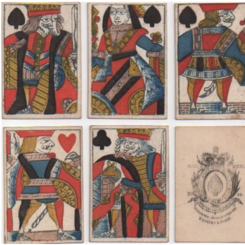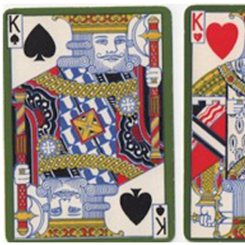31: The Not-So-Minor Cardmakers of the 19th Century - Part 2
This page continues the presentation of examples of the major English cardmakers of the 19th century.
This page presents examples of cards by Llewellyn, Hall and Hall & Bancks. For a full list of their cards in my collection, click here►
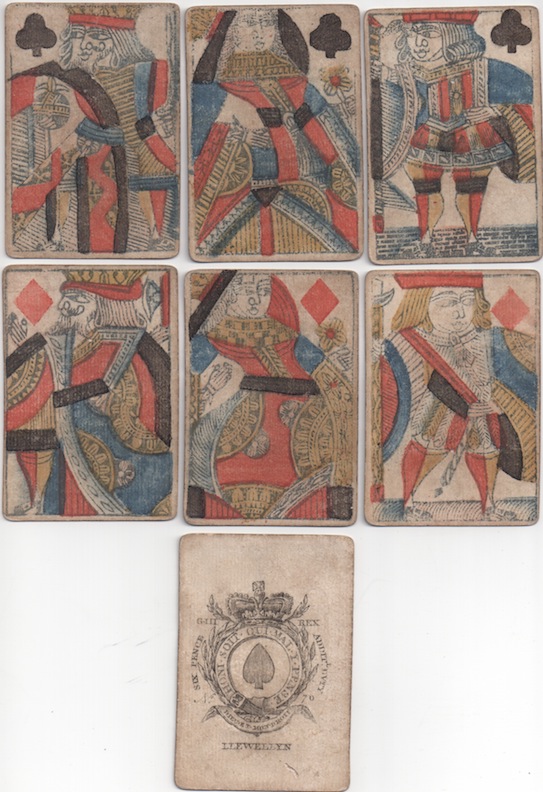 Llewellyn, c.1780
Llewellyn, c.1780
Llewellyn does not seem to have taken over McEvoy's blocks, but redrew his courts. These were like the early Hall courts, but with a different eye type.
HALL
A fairly early example from this maker: these courts are basically the same as Llewellyn's, but with Type II eyes rather than Type I.
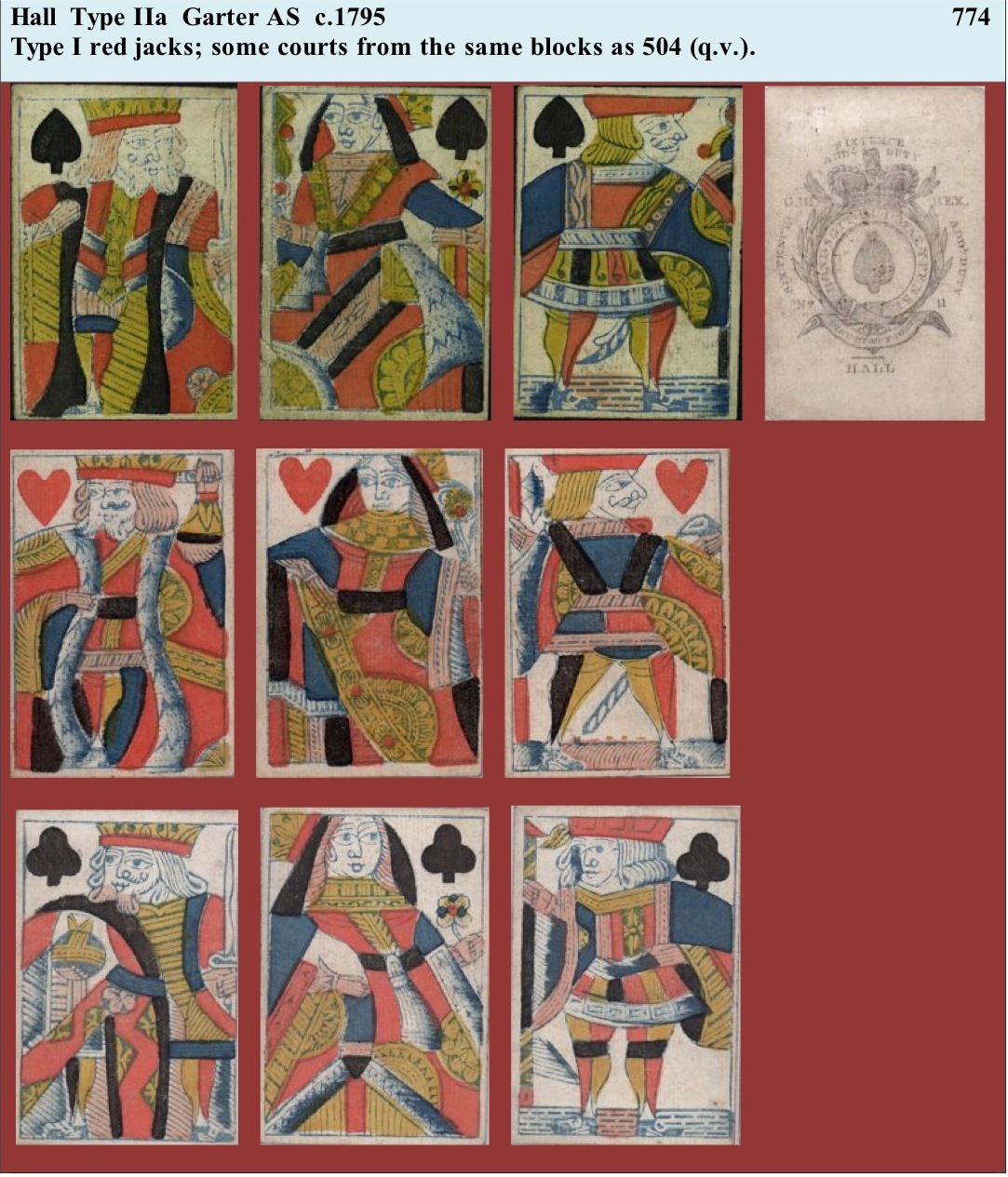
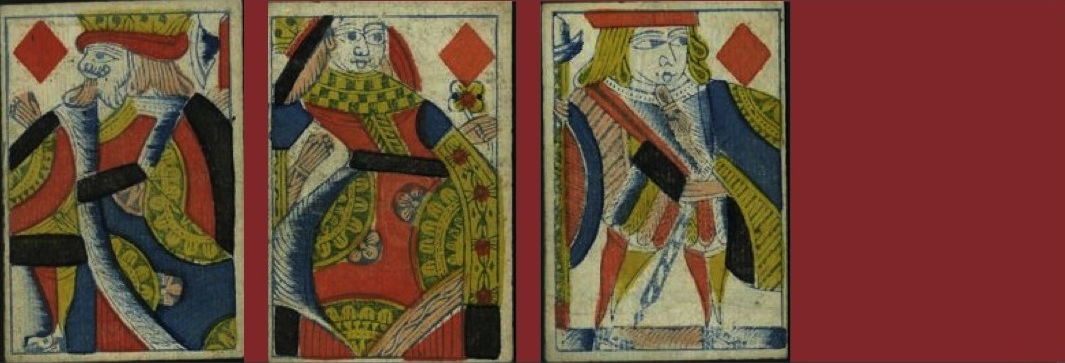
And three more examples, two of which have the wrong AS.
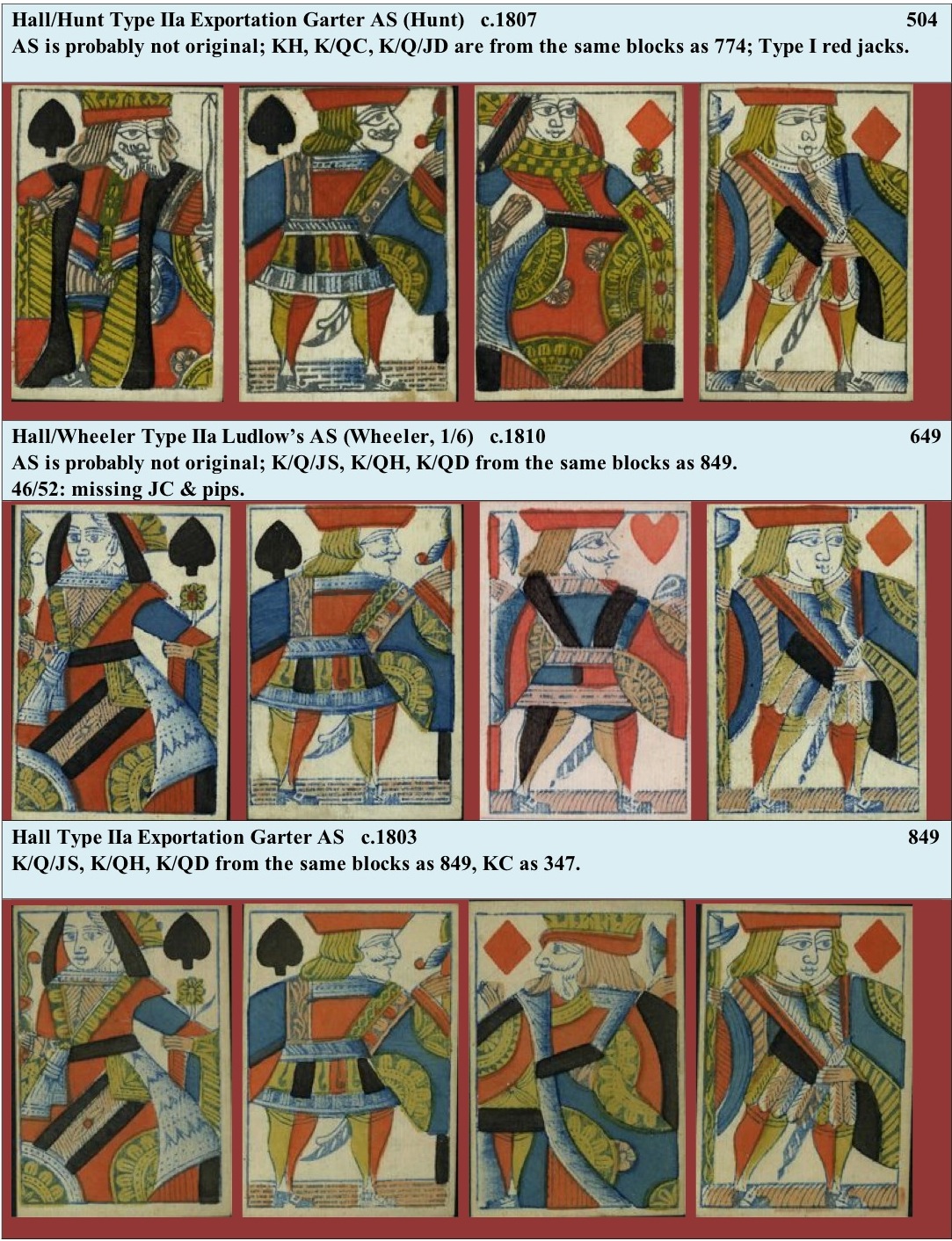
Later packs had a simplified, somewhat cruder version of the Type II courts.
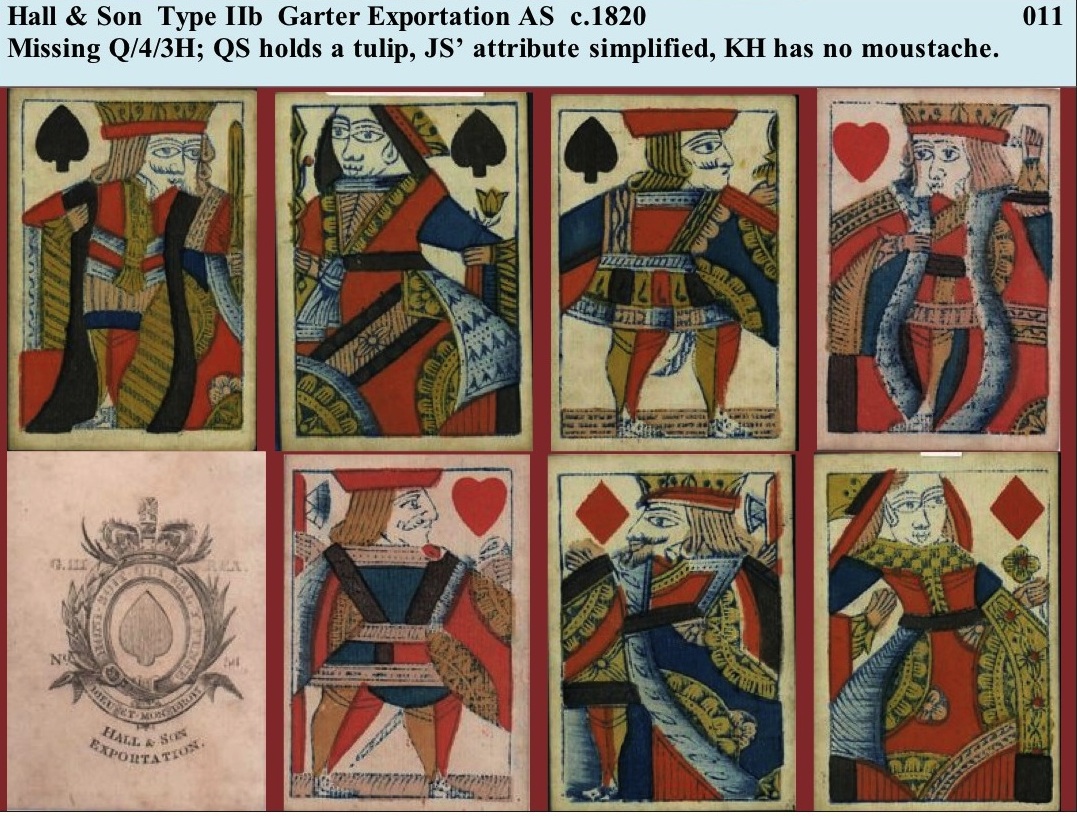
In around 1823 Hall was joined by Bancks and a new set of courts (HB2), which have some resemblance to the redrawn courts of Hunt (HB1; see previous page), were produced. For a while after the new firm was set up Hall & Son cards can be found in Hall & Bancks wrappers. HB2 continued into the Old Frizzle period.
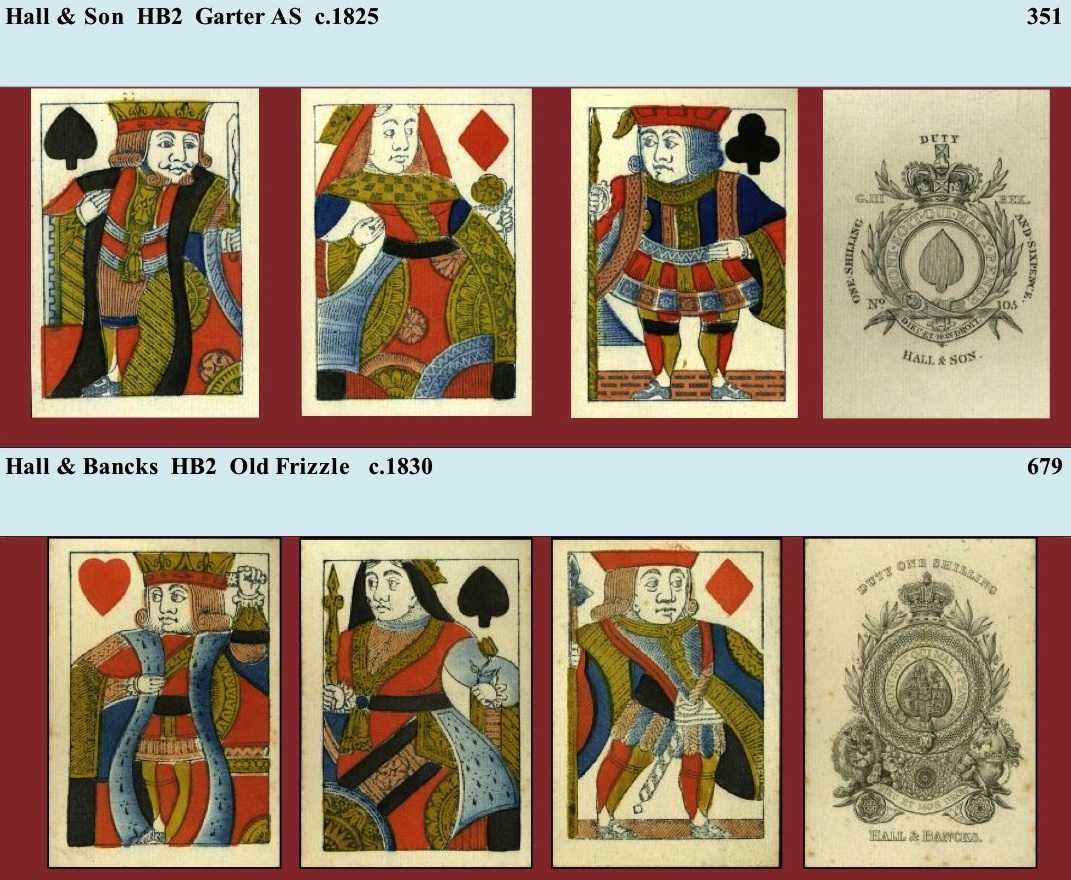
Following the amalgamation with Hunt in c.1840, HB2 eventually disappeared and HB1 continued to be used in Bancks Brothers packs from 1849.
Although we have seen that Bancks Brothers dwindled fairly rapidly in the 1850s, they did try some updating of their cards. As far as I'm aware, they were the first to produce a pack with all the pips on the left, thereby turning six of the court figures. This was done in the Old Frizzle period with cards that were smaller than the norm at that time.
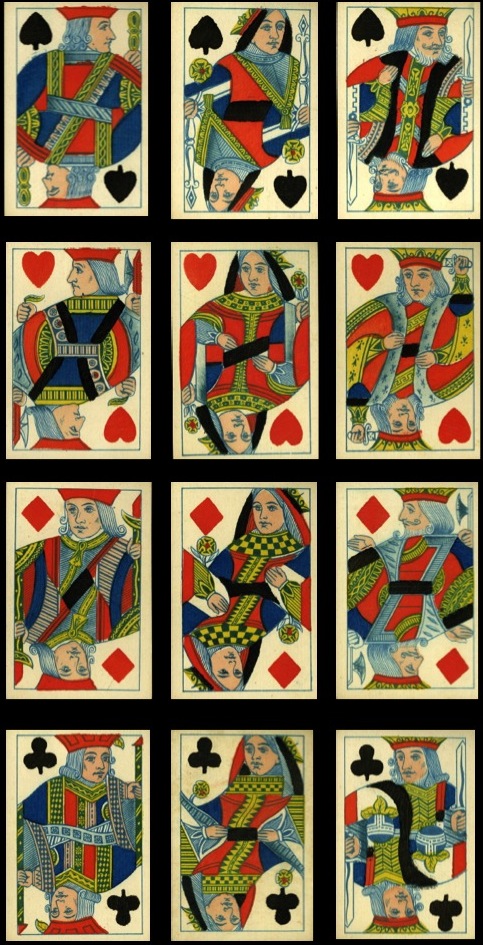
These cards are referred to in an article in The Field from 1866, even though this is after the Old Frizzle period, but one may assume a date of c.1860-62 for their introduction.
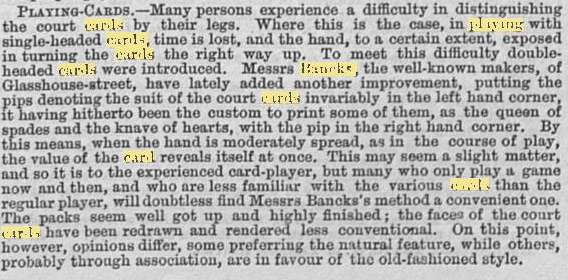
They also tried an odd kind of indexed pack, which is unlikely to have been a success. It probably dates to the late 1870s.

And they even tried a pack with courts in the North German style in the 1850s. Note that all the pips are on the left. Although it looks like the Belgian-made packs of the time in particular, the postures are those of the standard English courts with some of their attributes moved to make way for the left-hand pips; the KC even holds a turnip-top orb (see the double-ended courts above), as in the normal standard courts, though this is difficult to make out on the scan. Interestingly, Reynolds produced a similar pack about the same time, though theirs looks more authentically German (see page 32).
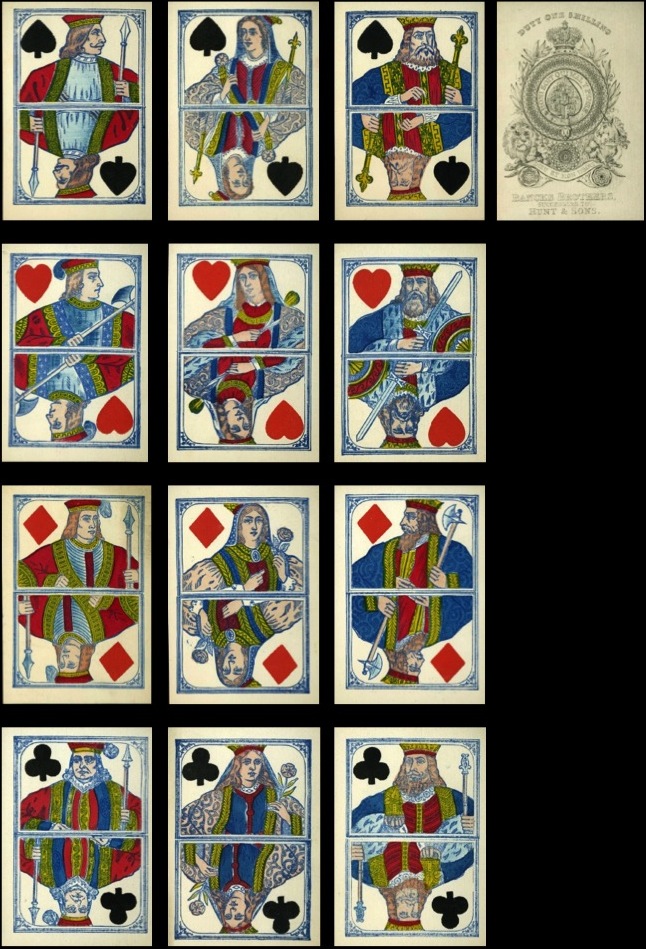
But for whatever reason they lost their share of the market and by 1880, when they introduced new printing methods, it was too late. The courts they produced (HB6) all had their pips on the left, but the queens all face in the same direction, so the design of the QS has had to be modified; the KH has lost a hand.
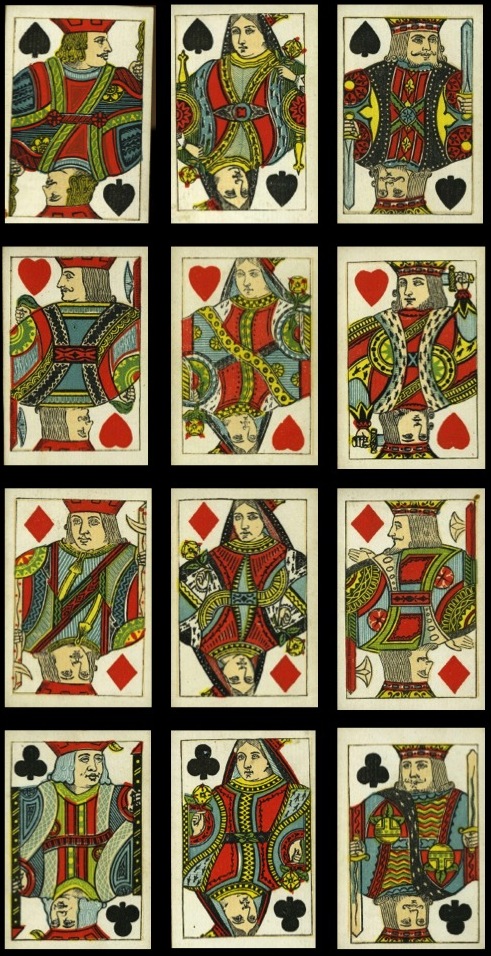
[For a timeline presentation of English card-makers 1761-1905, see page 20]
By Ken Lodge
United Kingdom • Member since May 14, 2012 • Contact
I'm Ken Lodge and have been collecting playing cards since I was about eighteen months old (1945). I am also a trained academic, so I can observe and analyze reasonably well. I've applied these analytical techniques over a long period of time to the study of playing cards and have managed to assemble a large amount of information about them, especially those of the standard English pattern. About Ken Lodge →

Related Articles

78: The Standard English pattern - Part 2, the tricky bits
There are many less straightforward aspects to the designs of the English pattern, which need carefu...

76: Transitions: Hunt & Sons
Styles change and technology develops. This means that it's possible to see transition periods in th...
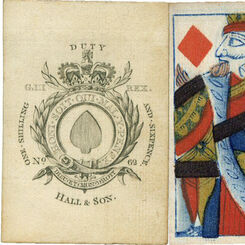
Hall & Son
Hall & Son
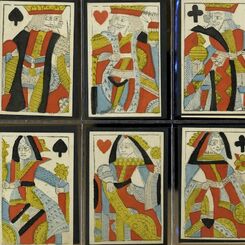
70: Woodblock and stencil : the spade courts
This is a presentation in a more straight forward fashion of the work done by Paul Bostock and me in...
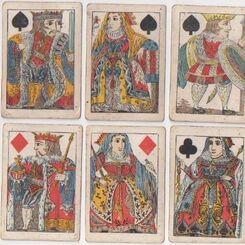
69: My Collection
This is an archive list of my collection. I hope it will be of use and interest to others.
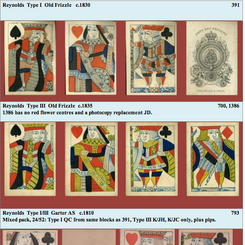
50: Joseph Reynolds
A presentation of my database of Reynolds cards.

47: Welch’s postcards and De La Rue’s redrawing
There are a number of court card designs that have never actually been produced as cards. It's a sha...
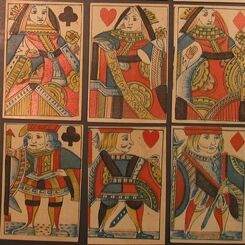
46: Henry Hardy, Henry French & Christopher Groser
A brief look at some makers of whom we know little.
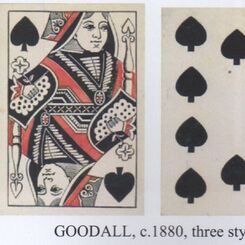
39: Mixed Packs
A number of mixed packs appear for sale from time to time, but it's important to sort out what is me...
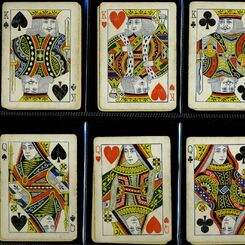
35: More Design Copies
Here I want to take another widely copied design and see how individual variation by the copier can ...
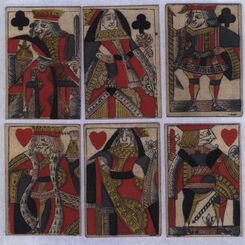
30: The Not-So-Minor Cardmakers of the 19th Century - Gibson, Hunt & Bancks
A preliminary look at the card-makers operating in the 19th century.
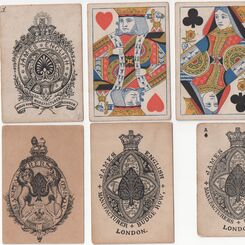
29: James English
An overview of the courts and aces of spades produced by James English

17: Waddington, Including some of their Less Common Packs
John Berry's two-volume work on the Waddington archive and collection is a very comprehensive presen...
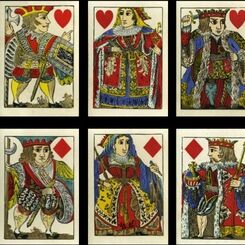
5: De La Rue
In December 1831 Thomas de la Rue was granted his patent for printing playing cards by letterpress.
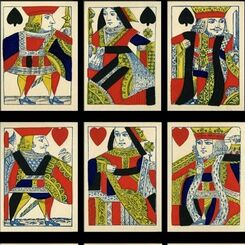
2: Still Collecting Playing Cards at 80
This is a personal account of some of my experiences collecting playing cards.

Bancks Brothers
The 'Old Frizzle' Ace of Spades shows the duty paid as one shilling, and the manufacturer's name is ...
Most Popular
Our top articles from the past 60 days


